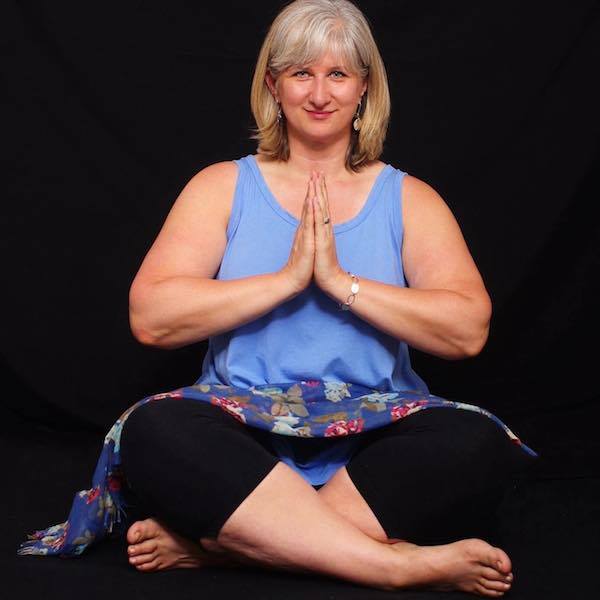Superheroes and Warriors – Part 5 in the Yoga and Body Image Book Discussion Series
June 30, 2015
We began our final Yoga and Body Image book discussion with a moment in recognition of the recent South Carolina shooting. On a personal level, I was happy about this; to be able to acknowledge something so significant in a yoga space felt necessary and important.
 It also felt relative to the discussion we’d been having for months and the conversation we’d go on to have that day. In the words of Audre Lorde, “There is no thing as a single-issue struggle because we do not live single-issue lives.” We’re not (all) coming to the mat just to work on our One-Legged King Pigeon pose. (Although I’m here to tell you that I just tried that pose for the first time recently and the experience was amazing.)
It also felt relative to the discussion we’d been having for months and the conversation we’d go on to have that day. In the words of Audre Lorde, “There is no thing as a single-issue struggle because we do not live single-issue lives.” We’re not (all) coming to the mat just to work on our One-Legged King Pigeon pose. (Although I’m here to tell you that I just tried that pose for the first time recently and the experience was amazing.)
The point is, we’re bringing South Carolina and McKinney into the studio. We’re bringing our identities into the studio. We’re bringing a whole lot of internal and external messages into the studio and onto our mats, based on our identities and lived experiences in the world.
In the June book discussion, we asked each other “What toxic messages have you overcome or negotiated?” We referenced the Rosie Molinary essay “Meeting My Own Body,” and the Audrey Bilger essay “Virabhadrasana in the Academy: Coming Out With An Open Heart.” But honestly, we talked a lot about our own experiences of “searching for our own personal power” and how our social locations impact how we’ve been able to (or not able to) find our own power.
Here are a few questions that rose to the surface during our conversation: How do you decolonize your yoga practice and your brain? How can you do vulnerable work if you don’t feel safe? Do you, as Audrey Bilger talks about in her essay, draw strength and empowerment from Warrior pose? Do you find yourself turning to superhero pose to find your personal power? Do you work on radical self-acceptance?
Of course, we didn’t come up with definitive answers to these questions, and the answers look different for everyone. We’re all negotiating all of those internal and external messages, in real-time. And it’s complicated work. But hopefully, this posts and the other posts about the book group discussions have a given you a sense of the breadth and depth of the things we’ve shared over the last several months.
Thanks to everyone who participated in the Twin Cities discussions, and to Elen Bahr and Beth Barila for their thoughtful facilitation. Please do keep the powerful conversations going; download the discussion guide or go wherever your communities and your conversations take you.
 BIO: Anitra Cottledge is a higher education professional, teacher, writer, developing yogi and compassionate questioner who tweets infrequently.
BIO: Anitra Cottledge is a higher education professional, teacher, writer, developing yogi and compassionate questioner who tweets infrequently.
RELATED:
- With yoga, we can be IN our bodies – Part 4 in the Yoga and Body Image Book Discussion Series by Elen Bahr
- “Sharing Strategies to Make Yoga More Broadly Accessible” – Part 3 in the Yoga and Body Image Book Discussion Series by Anitra Cottledge
- “I’m sure your story is just like mine.” – Part 2 in the Yoga and Body Image Book Discussion Series by Anitra Cottledge
- “Every exhale is an opportunity to forgive.” – Part 1 in the Yoga and Body Image BookDiscussion Series by Anitra Cottledge.
- Yoga and Body Image: Raising Awareness Through Book Clubs by Erin McCloskey
- “I’ve never said this before.” – A Yoga and Body Image Coalition Workshop Weekend by Elen Bahr
- Black Yogi. White Studio. by Anitra Cottledge
